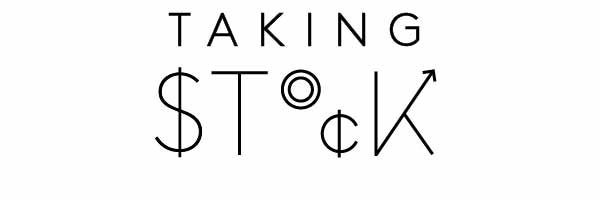Welcome to Taking Stock, a space where we can take a deep breath and try to figure out what the COVID-19 economy really means for our finances. Every month, personal finance expert Paco de Leon will answer your most difficult, emotionally charged questions about money. This year has forced many of us to reprioritise our finances, and there’s no clear road map for getting through the pandemic yet — but Taking Stock is here to help us figure it out together.
This month, we’re discussing how to get through to a loved one who doesn't see that they're about to get scammed. Have you ever been the victim (or almost victim) of a scam? How did it happen? Tell us your experience here to be featured in an upcoming Refinery29 story.
AdvertisementADVERTISEMENT
Dear Paco,
I think my friend is about to get scammed. She's recently become interested in finding a sugar daddy, and I initially supported her. She thinks she's found someone, but they haven't met yet and he's already asking for bank details so he can "send her money." I said it sounded too good to be true and that it was probably a scam, but my friend thinks I'm being negative and bitter about her finding a sugar daddy so fast. I'm not bitter! I just think people need to be more careful when interacting with people online — especially when there's going to be financial transactions involved. How can I convince her — quickly — that she shouldn't send her info to this person, and help her recognise the signs of a scam and how common they are? Or, do I let her learn the hard way?
Dear Careful Online,
You’re right; we all need to be cautious when it comes to our financial information and strangers on the internet. Financial scams are everywhere — especially in our increasingly online lives. From phishing schemes to catfishing attempts, there are a plethora of creative new ways for scammers to trick money out of our pockets and into their bank accounts.
If I were in your position, I’d try to have an honest, open, and earnest conversation with your friend. I would tell her that I care deeply about her, that I want her relationship dreams to come true, and that I support her. But, in the same way a crowded tourist destination can create an environment where petty theft can flourish, relationships involving financial exchange with inherent power imbalances create a ripe opportunity for scammers to thrive. I’d encourage her to move forward with eyes wide open, so she can more easily spot red flags. To get her started, here are some basic rules that are designed to financially protect her.
AdvertisementADVERTISEMENT
Rule #1: Never share bank details or other personal information. Any time you share your bank details with anyone online, you open yourself up to a potential threat. Your friend should not share bank details or any other sensitive personal information with her potential sugar daddy under any circumstances — even if he claims that he needs her social security number because he wants to set her up on payroll. Someone who is interested in building a relationship with her will be open to a payment method that she's comfortable using.
Rule #2: Use a third-party app to receive payments. A third-party app like Paypal or Zelle is a much safer alternative to handing over account details — but they're not entirely scam-proof, either. This is how the scam often works: A scammer can potentially use a stolen credit card to send money; they’ll claim they sent too much and ask for the difference to be returned. Once it’s sent back, they pocket it and, unfortunately, that means the victim of the scam may be responsible for paying the full amount back to the person whose credit card was stolen.
Any scenario where your friend would need to send money to her potential sugar daddy could be this sort of mistaken overpayment scam and is a red flag.
Rule #3: Don’t rush. Whenever anyone is rushing a financial decision or one that has financial implications, that’s a red flag. When we act too quickly, we're more likely to make a mistake. Rushing or creating a sense of urgency is a commonly used sales and scam tactic. It creates a sense of scarcity because we feel like time is running out. Finding the right sugar daddy and slowly building trust simply takes time. There are some things you can’t rush, and building trust is one of them.
AdvertisementADVERTISEMENT
One actionable step you can take right now is to encourage your friend to do research on her own. If she were thinking about hiring a financial advisor or working for a company in an industry with which she wasn’t familiar, you’d probably encourage her to do her own research so she could understand the world she’s getting into. Encouraging her to do her own research now will give her some baseline information, and could also provide her with related perspectives and stories from independent third-parties. It might make it easier for her to hear the advice and cautionary tales from people whom she doesn’t know. We have all been in this situation — sometimes a partner, friend or parent will tell us something that we reject until we hear the same exact thing from an independent third party. Humans are funny like that.
I think it would be supportive and helpful to warn your friend about the potential to be scammed, but I also think there’s only so much you can do. And you shouldn’t blame yourself if she doesn’t listen. At the end of the day, she’s an adult, making her own decisions; you’ve provided her with information, though, that will help her make the best possible one for her.
Your favourite finance friend,
Paco
(she/her)
Want more? Get Refinery29 Australia’s best stories delivered to your inbox each week. Sign up here!
AdvertisementADVERTISEMENT







